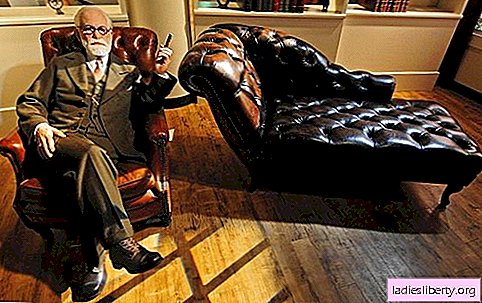
Holidays April 21
Local Government Day
In Russia, the Day of Local Self-Government was recently introduced into the holiday system - in 2012, by Decree of the President of the Russian Federation V. Putin. According to the content of the document, a new date is introduced to increase the importance of the institution of local self-government, as well as the promotion of democracy and the development of civil society. On this day of 2013, the authorities of the regions and municipalities will celebrate for the first time a professional holiday - Local Self-Government Day, and will hold events appropriate to the event.
The date for the holiday was not chosen by chance. It was on the studied day of 1785 that Catherine the Second signed the Letter of Merit to the cities, which marked the beginning of the formation of Russian legislation on local self-government. Its further development was associated with the reforms of Alexander II. After 1917, the idea of forming self-government was forgotten for a long time, right up to the beginning of the reform of state power in the late 1980s. And in 1993, local government was consolidated by the Russian constitution. Its development is still ongoing.
April 21 on the folk calendar
Rodion Icebreaker
On April 21, the Orthodox world commemorates the blessed Rodion, an apostle of seventy. According to legend, Rodion was a close relative of Paul and with him suffered martyrdom during the reign of Nero.
In Russia, Rodion was nicknamed Icebreaker, because during this period the ice is actively breaking on the waters. As a rule, certain predictions were made for floating blocks. So, for example, if ice was set in piles, then a lot of bread was expected in the fall. There was also a belief that today the month is meeting with the sun to tell each other about what is happening in the world. Two luminaries could well quarrel on this day. In this case, the weather was gloomy, which foreshadowed a rainy, cool and rainy summer.
On April 21, peasants took up plowing: "Rodion brought water, put a plow to plow oats," people said jokingly. Plowing was not easy at all, and in order for the crop to be degraded by the noble, they must be carried out with great care, not laziness. "The deeper you dig, the more bread you will eat," - such was the truth. And the sowing itself began when the first frog started to bark or when the moles began to protrude from the holes. A good time for sowing was also considered the period of leaf blooming on oak and birch.
Historical events of April 21
April 21, 753 BC - The foundation of the city of Rome
Discoveries in the field of archeology, epigraphy, and analysis of manuscripts showed that many facts about the ancient history of Rome, described in the primary sources, turned out to be reliable. The city was erected around the Old Russian fortress, surrounded by various settlements (Latins, Sabines, etc.). Local settlers gave shelter to outcasts and fugitives, and in order to obtain citizenship rights, the aliens had to go through the rite of passage, the rite of “adoption,” as the local community called it. To do this, it was necessary to kiss the chest of the statue of the mother goddess, who was considered the patroness of the settlers. This is probably why ancient legends describe the nipples of the Capitoline she-wolf and the founders of Rome, Rem and Romulus, nourished by her.
Every year on April 21, Rome celebrates Foundation Day. As part of this event, various celebrations are held, but the holiday is not a day off. And since 2004, a tradition was born in the city to hold the annual competition "Goddess of Rome". Contestants who have reached the age of majority (18 years old) and who live in Italy or in countries that were once part of the Roman Empire can take part in it.
April 21, 1954 - The entry of the Soviet Union into the UNESCO organization (UN branch on culture, science and education)
The formation of UNESCO was carried out with the participation of the Soviet Union, but he became an official member of the organization only in 1954. Today, about 200 countries are part of UNESCO, on its platform more than sixty different offices and divisions are formed. The headquarters of the organization is in Paris. Since Russia joined the ranks of UNESCO members, Moscow has been a stable member of its Executive Council. Without the participation of Russian representatives, the organization does not have the right to make any important decisions. The agreement on cooperation between the Russian Federation and UNESCO was re-signed and re-signed in 1993, and a year later its representative office was opened in the capital.
Since then, this cooperation covers a wide variety of spheres and sectors of the country's cultural and social life: the creation of educational systems, the preservation of the cultural and historical heritage, and work in the field of information technology. In addition, UNESCO has a direct impact on the adoption of state reforms on education, legislative activities, etc. Thus, UNESCO plays a huge role in the development of the Russian state.
April 21, 1972 - The Apollo 16 spacecraft descended to the surface of the moon
The launch of the Apollo 16 American spacecraft, operating under the Apollo program, was carried out on April 16, 1972. On April 21, the device reached the lunar orbit, however, due to some technical problems, the landing of the fifth lunar expedition had to be delayed for 6 hours. The ship sank to the planned site of the lunar surface (Descartes plateau), which was chosen because of the possibility of detecting traces of volcanic activity at this place. Apollo 16 spent three days on the Moon, and after completing the mission, headed to Earth, where it caved in 2 kilometers from the Ticonderoger aircraft carrier, thereby setting a landing accuracy record for all Apollo.
Born on April 21
Elizabeth II (born in 1926) - Queen of England since 1952. She is the head of not only the United Kingdom of Great Britain and S. Ireland, but also fifteen other countries of the Commonwealth of Nations. At 21, the Queen married Philip (Prince of Greece and Denmark). The royal couple reproduced four children: Charles, Andrew, Edward and Anna. During the reign of Elizabeth, ten prime ministers were replaced in the country. However, her Majesty’s birthday celebrations are preferred in the summer, in an atmosphere of warmth, flowering and fragrance.
Frederick August Froebel (1782-1852 gg.) - An outstanding teacher of Germany. Creator and founder of kindergartens. The vast experience of teaching children led the teacher to the idea that they better perceive information in games and in the conditions of a coeval collective. To put his theory into practice in 1837, Frobel organized the first children's group. Soon, this theory was recognized as highly effective and rooted throughout the world.
Ivan Kulibin(1735-1818 gg.) - The famous Russian mechanic-inventor. In 1767, he made a watch with a clockwork mechanism, the first musical apparatus with many different melodies, as well as an automatic mini-theater with moving puppet figures. In 1772, Kulibin designed a model of a 300-meter bridge, which was intended to be installed on the Neva. Also among his inventions include a searchlight, a waterway, a crew with a pedal mechanism and much more. Today, the name "Kulibin" is a household name, they are called self-taught masters who have achieved success in their favorite craft.
Name day April 21
Susanna, Felix, Arnold, Conrad, Nifont, Martha, Phlegont, Rodion.











